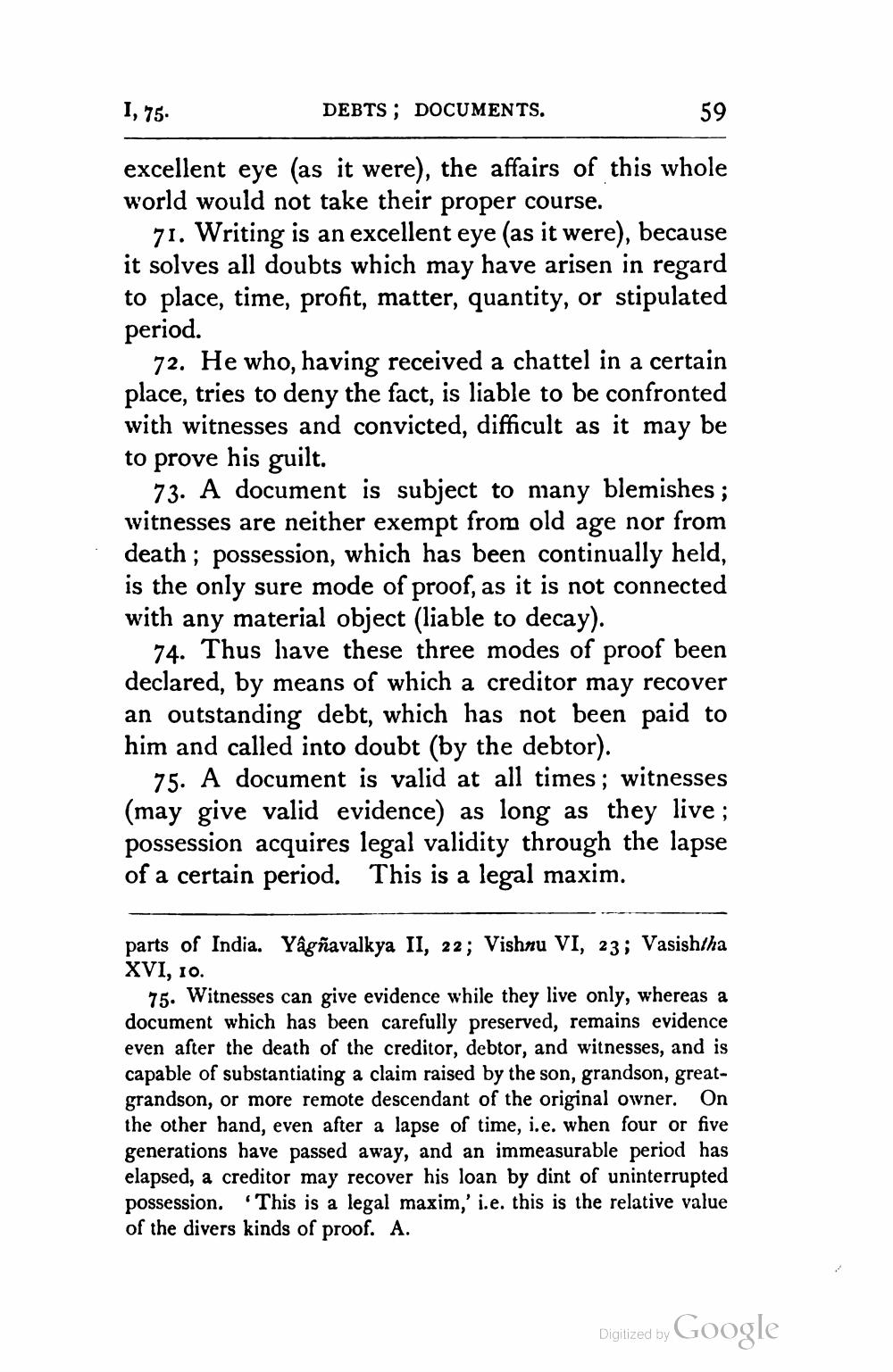________________
1, 75.
DEBTS; DOCUMENTS.
59
excellent eye (as it were), the affairs of this whole world would not take their proper course.
71. Writing is an excellent eye (as it were), because it solves all doubts which may have arisen in regard to place, time, profit, matter, quantity, or stipulated period.
72. He who, having received a chattel in a certain place, tries to deny the fact, is liable to be confronted with witnesses and convicted, difficult as it may be to prove his guilt.
73. A document is subject to many blemishes; witnesses are neither exempt from old age nor from death; possession, which has been continually held, is the only sure mode of proof, as it is not connected with any material object liable to decay).
74. Thus have these three modes of proof been declared, by means of which a creditor may recover an outstanding debt, which has not been paid to him and called into doubt (by the debtor).
75. A document is valid at all times; witnesses (may give valid evidence) as long as they live ; possession acquires legal validity through the lapse of a certain period. This is a legal maxim.
parts of India. Yâgñavalkya II, 22; Vishnu VI, 23; Vasishtha XVI, 10.
75. Witnesses can give evidence while they live only, whereas a document which has been carefully preserved, remains evidence even after the death of the creditor, debtor, and witnesses, and is capable of substantiating a claim raised by the son, grandson, greatgrandson, or more remote descendant of the original owner. On the other hand, even after a lapse of time, i.e. when four or five generations have passed away, and an immeasurable period has elapsed, a creditor may recover his loan by dint of uninterrupted possession. This is a legal maxim,' i.e. this is the relative value of the divers kinds of proof. A.
Digitized by Google




